#for once it actually IS about the narrative parallels not my evil agenda
Photo
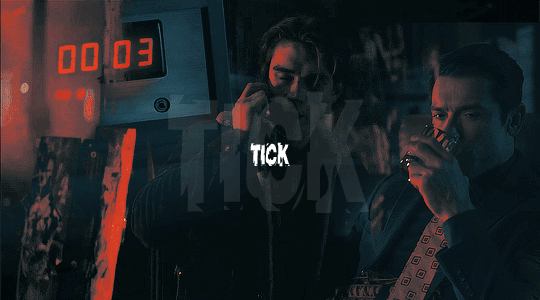

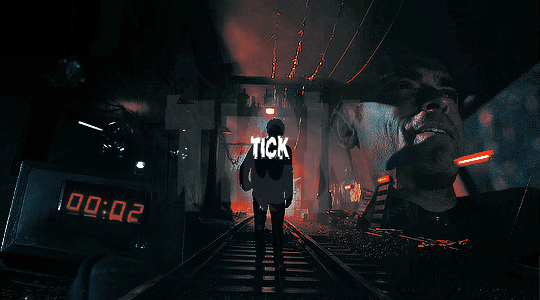

So then there's still time. To do what? To build a bomb
#riverdale#riverdaleedit#hiram lodge#archie andrews#archieandrewsedit#hirarchie#for once it actually IS about the narrative parallels not my evil agenda#paralleling them after citizen lodge is just so sobcat#archie once again using the kind of violence he learned from hiram as his way to solve problems....#hiram is hiram forever but archie is also hiram forever unfortunately for him#like he was right and funky to blow up the train tracks but in light of the parallels its also just tragic#i know this is ironic coming from someone who tagged this very gifset hirarchie but PLEASE let him heal and stop doing this#also fun fact the premade psd here is called we must be killers. lmao.#laughing with tears in my eyes#also shoutout to arsenicpanda for getting me a logoless of 05x19 without that i wouldve died on the last two gifs
135 notes
·
View notes
Text
LO Fans: "I love Lore Olympus because it deals with serious themes, like sexual assault, abuse, gaslighting, trauma, and mental health issues!"
Me, who spent my life discovering and obsessing over masterpieces like this:
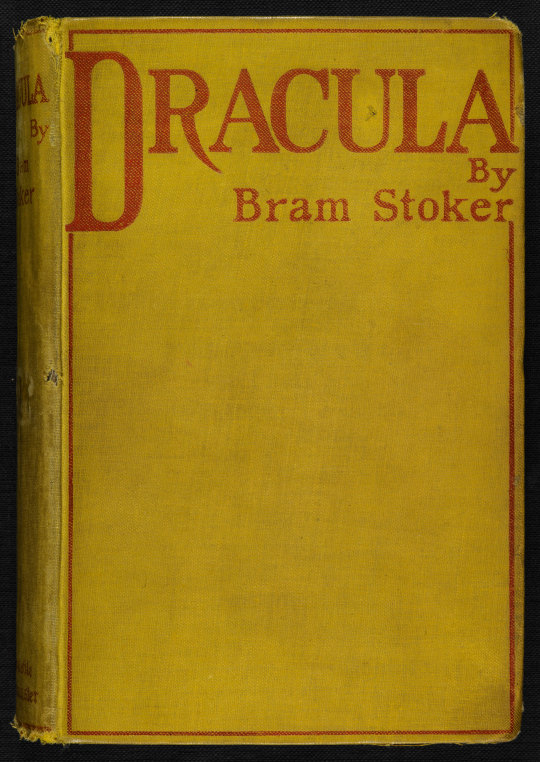
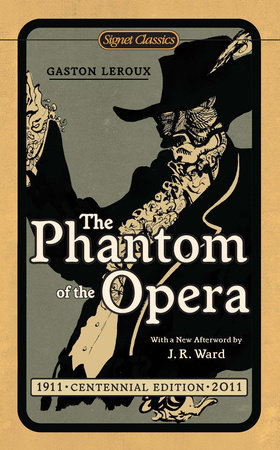
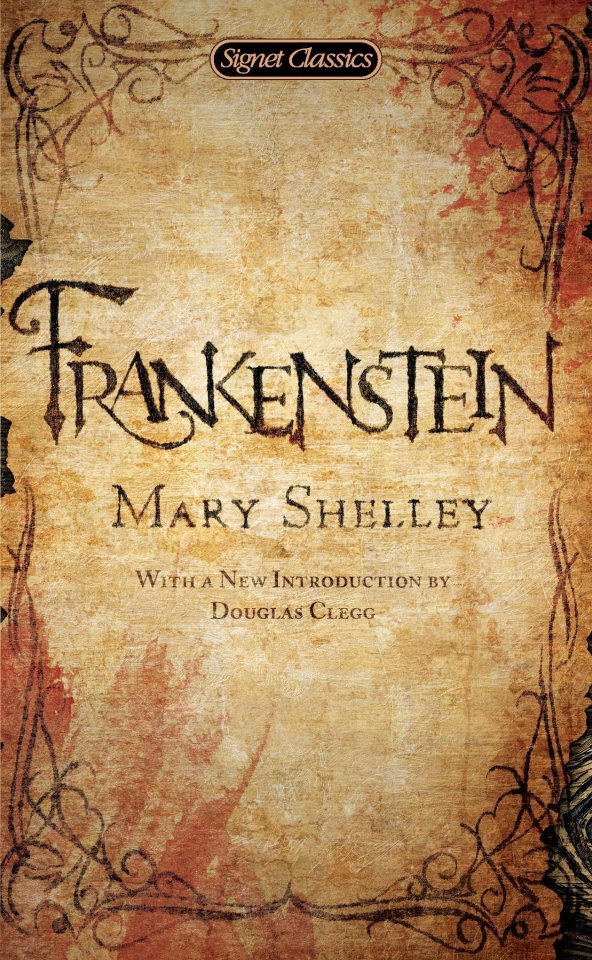
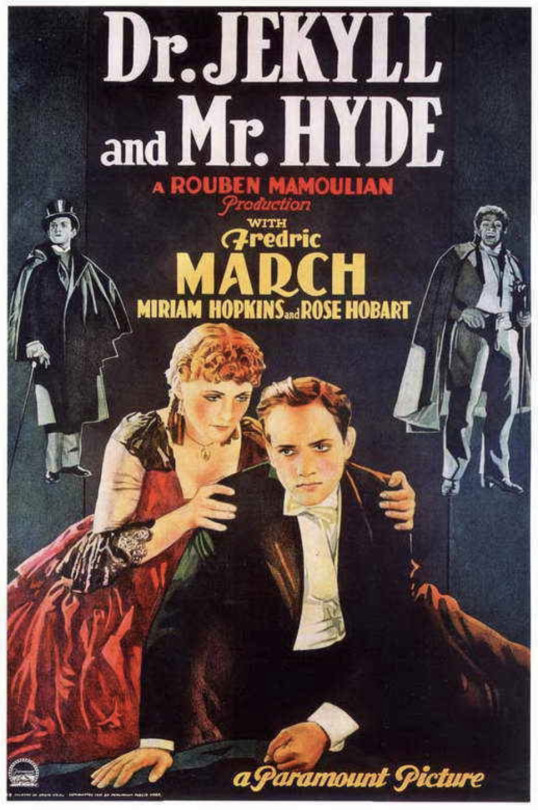
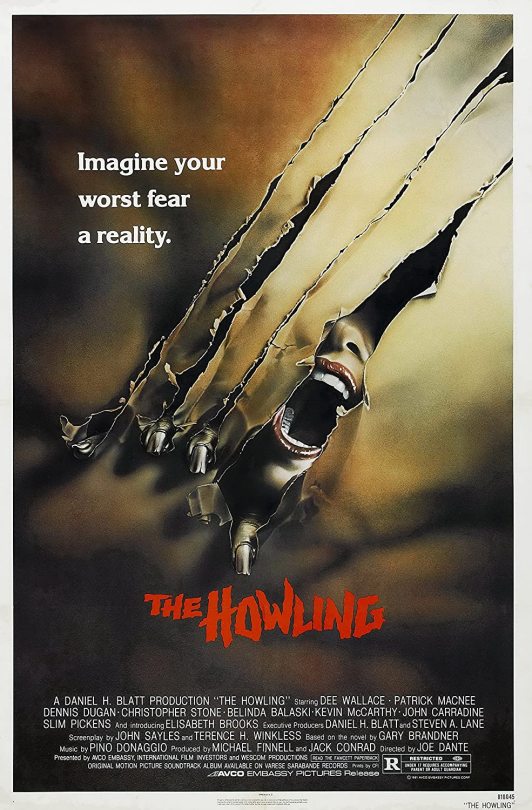
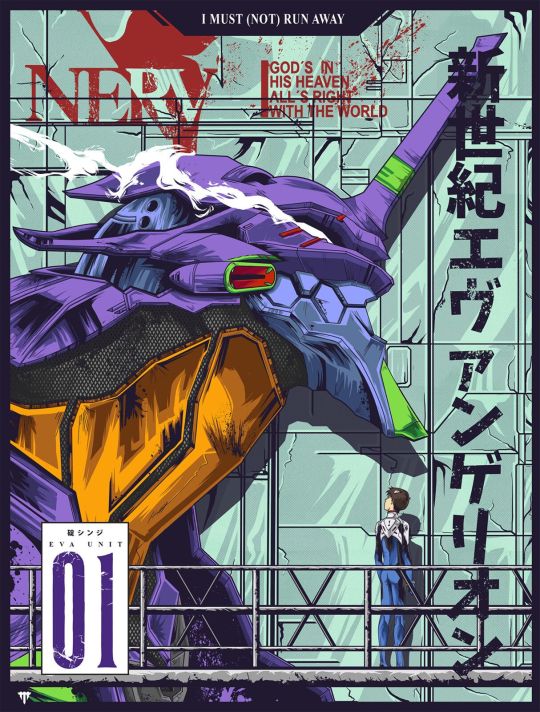
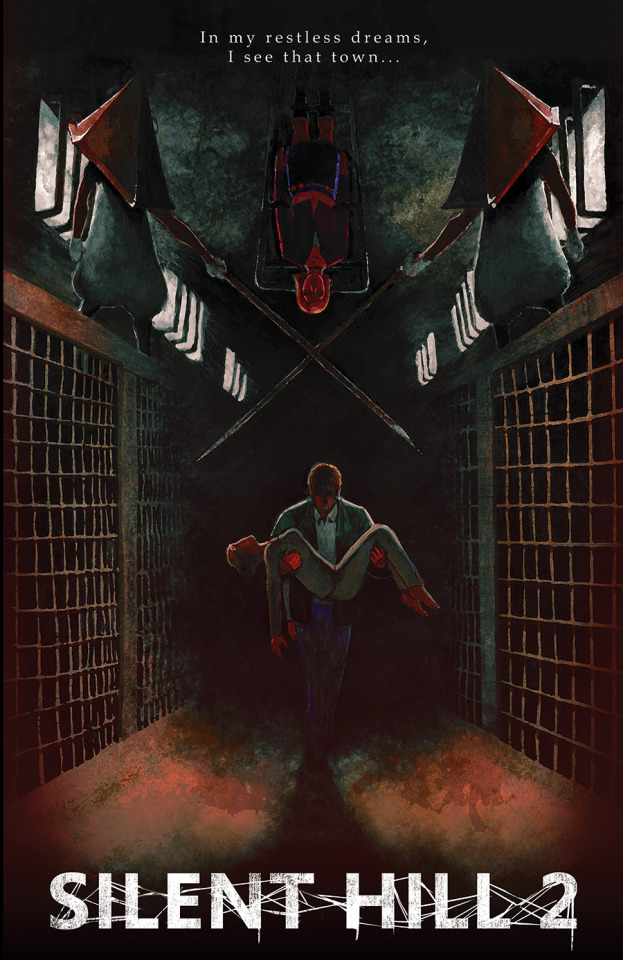
"You're gonna have to try a lot harder than that to impress me."
Yeah, I never understood that kind of praise. For one thing, people act like LO is groundbreaking for that reason, despite there being countless movies, books, tv shows, comics, and video games that also deal with the same themes. That isn't to say there can't be more stories like this, however. I, for one, am begging for another video game that comes close to the emotional resonance of Silent Hill 2, or for a faithful adaptation of Dracula and/or Phantom of the Opera, or for a horror movie as unsettling as The Howling! But to say any new story that deals with these themes is unique for doing so, is just simply not true. Lore Olympus is no more unique than any of these stories. Also, I don't understand the praise that Lore Olympus is great just by virtue of having these themes in the first place. Just because a story has serious themes, doesn't automatically make it good. Far too often does LO use its themes as a crutch for a plot that is standard issue among romances, as opposed to stories like The Howling, which has a very intriguing, outlandish plot that serves as a catalyst to explore themes of very real and relatable horror. Lore Olympus, without its intense themes, is just another story about the CEO falling in love with his intern. And don't get me wrong, I LOVE those kinds of stories, but Lore Olympus just doesn't really do it for me. And the poorly executed themes just hamper it even further for me.
If it wasn't already apparent, has anyone noticed a pattern between these titles? All but one are horror stories. In my opinion, that is one of the key differences between them and LO: Horror! The themes within, are ones that illicit terror, and the stories reflect that (even Phantom of the Opera--don't listen to anyone who says it's a romance). Starting with Dracula, one of the scenes that horrified me the most in the book was the one where Count Dracula sneaks into Mina's bedroom. The book describes him slitting open his own vein and forcing her to drink his blood. Mina then expresses feelings of violation, much akin to what rape survivors feel. It doesn't pull any punches in its shocking, horrific portrayal, but it never comes off as exploitative. That's because the best horror stories rely on the audience's empathy. In this case, nobody wants to feel violated, so we feel as horrified as the characters do when we read about this grotesque event. And because it is about illiciting fear through empathy, Dracula succeeds where Lore Olympus fails. Lore Olympus, before all else, is a romance. And rape should not be in a romantic story. Especially not when the narrative of LO uses this trauma to validate the relationship between the two leads. I'm not a fan of stories that use trauma to validate a relationship between romantic interests, and I think that partly stems from reading the Phantom of the Opera.
If you ask me, Phantom of the Opera is one if the best books to discuss abuse and gaslighting ever written! Despite misconceptions generated by the popularity of the musical, PotO is very much a horror story with hardly any romance at all. And it's one of the best examples about why using trauma to validate a romance is a very bad idea! You see, all the conflict of the story begins with The Phantom and his trauma. He was born with multiple physical deformities that cause him to look like a living corpse. Because of this, he is despised and rejected by the world in order to escape the hatred of the world, he commissions the construction of the Paris Opera House, complete with intricate catacombs where he can live out the rest of his miserable days. Then one day, a woman named Christine comes to work at the Opera as a chorus girl. She is sad and alone due to her being orphaned, without a friend in the world. She too is emotionally damaged and the Phantom thinks this means she'll understand him. The trouble begins instantly when he claims to be a character from a folktale that Christine's father used to tell her. This is when the manipulation and gaslighting begins. Part of what makes this so effective is how we see it from an outside perspective. The protagonist, Raoul, is in love with Christine and we get to see his confusion and growing concern when he starts realizing Christine is showing signs of an abusive relationship. What makes the relationship even worse is the fact that Christine actually does understand The Phantom. So she doesn't run away not only out of fear, but also compassion. She knows what it's like to feel isolated and dead to the world and The Phantom uses that against her. The more I describe this, the more parallels I begin to see to Hades' and Minthe's relationship. Yes, Minthe abused Hades in much of the same way as The Phantom abused Christine. Notice how Minthe keeps convincing Hades that they're the only people who understand each other, even going so far as to say, "We're the same." The funny thing is, that's exactly what the narrative uses to validate Hades' and Persephone's relationship! It tries to establish that Hades and Persephone relate to each other and they say, several times, "We're the same," to each other. But this is exactly how Hades got stuck in a toxic relationship with Minthe, so why is it suddenly okay now? Relationships that use shared trauma to validate themselves are almost always doomed to become toxic, in one way or another.
So what about the healthy relationship in Phantom of the Opera? Well, it's kinda interesting actually. You see, Christine eventually comes to realize that she needs help, so she turns to the protagonist, Raoul, to get her away from the Phantom. Raoul has an interesting character arc because he starts the novel being pretty immature and kinda selfish. He doesn't really take Christine's feelings into consideration. It's more like a boy chasing his childhood crush (actually that's exactly what happens). However, over the course of the story, as he becomes increasingly concerned with her well-being, he learns to care more about her feelings and her needs. This culminates in the climax, when he's willing to crawl through hell itself for her sake. I bring all this up because I wanted to compare Raoul with Hades as well. Hades is a very consistent character. He doesn't need an arc like Raoul because, from the very beginning, he's willing to put all of Persephone's needs before his, to a fault! That is his entire purpose within the narrative of LO. He exists to serve Persephone. Raoul didn't exist to serve Christine. He had his own journey of growing and maturing. And Christine didn't exist to serve Raoul either. It bothers me that a novel from 1910 has a more well-rounded relationship than a modern comic! Actually, now that I think about it, isn't Persephone's entire character arc supposed to be her learning that she shouldn't exist to serve others? Well, that totally contradicts Hades' role in the story, doesn't it? He exists to serve her! I guess, in the eyes of LO, it's only okay if men serve women, but not for women to serve men. Newsflash: neither is okay.
Now Dr. Jekyll and Mr. Hyde (1931) remains, to this day, one of the most terrifying movies I've ever seen! That's all thanks to its brutal depictions of domestic abuse. So Dr. Henry Jekyll believes the solution to enlightening the human race is to separate the good and evil in our souls. He solves this problem by creating a drug to do just that, which transforms him into Edward Hyde, but he becomes addicted and starts terrorizing a woman who was once a former patient of his. I think what makes this so effective, when compared to LO, is one simple factor: Fear. I am terrified of Edward Hyde, but whenever Apollo shows up, I'm just annoyed. That's because Hyde isn't being used to sell an agenda, while Apoll is. Apollo is all about making a statement about toxic masculinity, which always bothered me from the very beginning! Being an abusive cunt who rapes women has nothing to do with masculinity! It doesn't matter if you're masculine or feminine, anyone can be a cunting abusive rapist. If you are a rapist, it's because you're a monster who lacks empathy, not because of masculinity. And if you think masculinity has something to do with a lack of empathy, fuck off! Dr. Jekyll and Mr. Hyde is not about toxic masculinity. It's about how drug addiction can often hurt other people around us just as much, if not moreso, than ourselves. It also doesn't use rape to validate a relationship between characters. I'm sorry, but that is just the laziest storytelling technique. When the antagonist is a rapist OF COURSE the male love interest is going to look better by comparison! But when you take Apollo out of the equation, Hades stops looking like a desirable love interest real fucking quick.
So yeah, I think Hades makes for a bad love interest. That's mostly because he's so much like Shinji Ikari from Neon Genesis Evangelion. Yeah, the one title from the list above that's not a horror, but is no less relevant. The thing is, both Hades and Shinji have a lot in common, such as hating themselves, having a bad relationship with their father, and not caring at all about their own wants and needs. Oh, also Asuka's a better written character than Minthe, but that's a whole other topic. What makes Evangelion work, in my opinion, is that Shinji's whole journey is about learning to love himself, while Hades is portrayed as being perfect the way he is. Hades in LO is like a flawless beacon of virtue, solely because he worships the ground Persephone walks on. But the guy just doesn't care about himself at all! Like I said earlier, Hades guilty of the same self-destructive behaviors as Persephone but he's praised for it, while Persephone is encouraged to look after herself more often. Compare this to Shinji, whose life only gets worse the more he neglects himself. The only time Hades does something beneficial for himself is when he breaks up with Minthe, but immediately after that, he starts devoting every ounce of energy to Persephone! All that matters is her! He doesn't give a single fuck about himself. Sorry, but that's not good qualities in a male love interest. In all fairness, this is a problem with the romance genre as a whole. Most romances give priority to the protagonist (in this case Persephone) while neglecting the love interest (Hades). It's why I have a serious problem with the entire genre.
Now what could Silent Hill 2 have that is in any way relevant to Lore Olympus? Two words: Nightmare Fuel. Personifying trauma as literal demons is one of the smartest ideas anyone's ever had, because speaking from personal experience, that's how it feels. I just don't feel like the trauma experienced by the characters in LO is a waking nightmare like it is in real life. For one, the characters' trauma only pops up when it's convenient for the plot. Like whenever Persephone starts experiencing ptsd, it happens when she's with Hades so we can get a scene with Hades cuddling her. After that, it shows up in a scene to make her look badass by confronting Apollo. No, just no. The Howling did it better too, by making the protagonist's trauma such an inconvenience in her life! I never felt that way in LO. When you uss traumatic encounters to make your character look like a badass, kindly fuck off.
29 notes
·
View notes
Text
My Big Damn Irina Derevko Post

(Note: Spoilers for Metal Gear Solid 3: Snake Eater and The Americans ahead. And for Alias, obviously.)
I’ve never understood why Irina Derevko is so beloved.
No, scratch that. I do understand why she’s beloved. What I don’t understand is the belief that the character on-screen actually had anything but the most superficial likeness to the character than exists in the better-than-the-actual-show fandom headcanons. Like, season 2 is overwhelmingly considered the best season of the series, and Irina is often credited as one of the main reasons, and…I can’t see it? [*1]
Similarly, I don’t understand the hate for Irina’s final story. Yes, the missiles and mass murder specifically were stupid, and the final fight with Sydney is seriously lacking in “oomph”, but these are execution problems, and most of the complaints appear to be about the concept—as in, fans believe Irina wouldn’t put her ambitions above Sydney, especially after season 4. To which I say…really?
Sure, I can buy that Irina loves Sydney, and Jack, and Nadia, in her own, destructive way; what I can’t believe is she cares for them more than she does her agenda, whatever that is at any given moment . Like, I don’t believe anything she does in season 2 actually works, if the idea is that she’s somehow doing it for a greater good. Maybe if she were operating from a position of weakness, but that’s not the case—she remains the strongest piece in the game throughout the season. [*2] Why, exactly, is all this convolution and emotional manipulation of the people she allegedly loves needed, if her goal is a sympathetic one? Furthermore, the series glosses over, if not outright ignores, the various details which indicate that Irina was not on the level—first and foremost: why go to the C.I.A., i.e. the United States, in the first place, unless she wants something only they can provide? She’s not American! Her work as the Man was global!
(Speaking of agendas, I know that it’s taken as gospel by at least part of the fandom that everything Irina did in season two was in order to be able to find Nadia again. Fair enough: even if it’s not quite canon—I don’t think they ever explicitly say this was actually the case—there’s enough actual in-show evidence (a rare thing, in some respects) to make it plausible [*3]. That, said, I’m not sure “trying to find my daughter” justifies much of anything she does—not enough to make her more sympathetic than, say, Sloane.)

I also don’t think Irina’s presence does a whole lot for the series’ larger narrative, as evidenced by the fact that, for all her importance, she doesn’t actually change a whole lot. It feels like she should, but between the SD-6 take-down being way emptier than it should have been, and the fact that neither Sydney nor Jack end the season any different than they started it, she ends up feeling largely inconsequential. [*4] It is also equally hard, if not impossible, to say how the events of the season have changed Irina, given how opaque everything about her is designed to be. Later, Irina ends up being largely incidental to Nadia’s discovery, and Nadia’s story is arguably better with Irina as the unsolvable dead mystery, in part because it helps differentiate her from the possibly evil possibly repentant figure that already exists in SpySkipper’s life.
And that’s one of my other issues with Irina as a character: while there is in theory a lot to distinguish her from the rest of the cast—her upbringing alone!—the way the show uses her de-emphasizes those differences and emphasizes the similarities to such a degree that she often ends up feeling redundant. The “whose side is she on” beat, in particular, had arguably already become overused when it came time to play it with her, and by the time SD-6 was done and she explicitly joined Sloane, there were too many similarities between the two to make the dynamic between them compelling, particularly since the show made it verboten for either of them to speak about their motivations. Furthermore, if one believes that Irina did it all for her family, then what is there to distinguish her from Jack, who’s already ready to torture as many people as necessary for that very thing?
To be clear, there were ways Irina could have realized her potential to be Alias’ version of Metal Gear Solid’s The Man The Boss or The Americans’ Elizabeth Jennings—or rather, a version of those characters that actually works as well as they do. That’s certainly what her fans seem to want. Unfortunately, those ways rely on Alias being…not like itself.

I am not the first person to note the similarities between Irina (a.k.a. Laura Bristow) and Elizabeth Jennings (a.k.a. Nadezhda): they’re hard not to notice, given that they’re both KGB spies and assassins embedded in the United States and operating under cover during the Cold War, and forced to select between loyalty to their country and the family they’d made (although it’s worth noting that Elizabeth’s husband, unlike Jack, is in on the scheme and also a KGB spy/assassin) [*5]. The Boss, meanwhile, parallels season 2 Irina: at the beginning of Snake Eater, where she appears, she betrays the C.I.A. without explanation and defects to Russia, and she spends most of the story running rings around everyone, including her protégé Snake (the game’s protagonist, who’s been assigned to kill her and stop her sponsor, a Russian colonel named Volgin) until her actual motives are revealed. She also exists in a universe which combines semi-realistic espionage with frequent batshittery, including psychics, hornets as a weapon of choice, impossibly old snipers with the power of photosynthesis, and a ridiculous amount of reversals and double-crosses.
That said, despite the similarities, there is one chief difference between either work and Alias, which is crucial to making their stories work: neither is naive about the world they’re presenting, both understand, in a way Alias does, that one can’t be a spy and keep one’s hands clean. Being a spy, for the Boss, meant betraying her old friends and everyone she ever loved, allowing herself to become an international pariah, and ultimately dying, because that’s what the mission required. Elizabeth Jennings killed innocent people, ruined friends’ lives, blackmailed countless people, manipulated her daughter into following her footsteps, and ran herself ragged for years, all because she believed in the cause. It’s not a great life, being a spy.
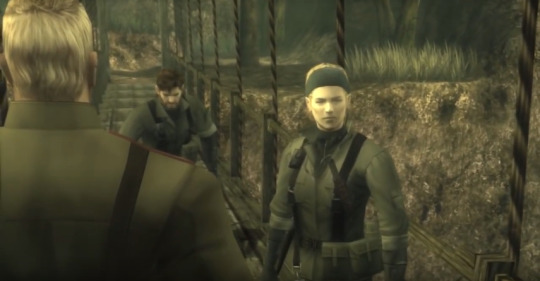
MSG 3 images obtained from Metal Gear Solid 3: The Movie, a re-edit of the game’s cutscenes by KefkaProduction. It can be seen here.
(Sydney, meanwhile, often just has to lie a lot.) [*6]
The thing about this sort of work is that it breaks down one’s ability to claim the moral high ground. Once you’re doing terrible things on the regular, it’s easy to see enemy spies are just other people who are also doing terrible things for their mission—potential comrades who just happen to be on the other side. Snake, The Boss’ protégé in Snake Eater, develops a relationship with Ocelot, a Sark-like soldier working for the Russians. Elizabeth and Philip Jennings develop a friendship with Stan Beeman, an F.B.I. counter-intelligence agent living right next door, which turns out to be every bit as genuine as it is an effort to cultivate a source.
Alias, however, spends much of the series unable and unwilling to strip Sydney of her moral high ground, once she obtains it by working for the C.I.A. What should have been the beginning of her moral journey—after all, how different is SD-6 from the C.I.A., if the people working for the former can’t tell they aren’t working for the latter, and their missions largely work out the same way?—is instead treated as the end. As terrible as U.S. intelligence proves to be, it never actually makes Sydney question her loyalties, or even her feelings about it all. This, in turn, utterly undermines Irina’s potential as a storytelling element. What good is a temptress if there’s no potential for the person being tempted to change?

(Similarly, if we’re not allowed to know what Irina Derevko wants—a key element of character-building, as many people will tell you—how are we meant to know how she herself is being changed?)
Given what we got, it’s no surprise that Irina’s season 4 return is so uninspired, consisting largely of fan service moments, and very little in terms of character progression, or sense that the Sydney’s relationship has moved forward in any way that feels natural—what else was there to do? [*6] It’s inoffensive to the point of being really annoying.
While Irina’s season 5 appearances are in a way a step backwards, Irina was always more interesting the closer she got to villainy. Her appearance in “Maternal Instinct” is a hoot, and allows her and Sydney to play roles only they could play. Their final battle, while not really satisfying—in part because it’s the fourth ladyfight in as many finales, and none had come even close to matching the original—feels necessary for Sydney’s story, which had finally begun progressing again after seasons of stalling: there is catharsis to “I am through being disappointed in you” that feels utterly necessary. Could it have been better? Sure, but then, so could 80% of everything having to do with Irina.
Footnote footnote revolution!
[*1] I remain convinced that season 2 is actually the worst season, is the one that irrevocably ruined Alias, and that Irina actually had a fair amount to do with that. But that’s a different TED Talk, and I’m willing to fight about it, if anyone wants.
[*2] Well, it depends: the status of Irina’s organization following her “defection” is…unclear. If we accept the idea that the organization is in shambles, as the season suggests, then there’s really no reason why, exactly, the C.I.A. actually needs her cooperation, given that they…uh… didn’t need it in order to actually grievously ruin it in the first place. And yet, here we are.
[*3] To a degree, anyway. The Nadia story gets us as far as explaining why Irina would need The Telling, but doesn’t tell us why she’d need The Circumference, even if we ignore its eventual canon purpose.
[*4] No, their season 3 belief that Irina can be worked with doesn’t count, as it is spun out of whole cloth, and can’t be directly tied into anything that occurred the previous season.
[*5] The Americans also features an enviable wig game, which should feel very comforting to Alias fans.

[*6] I’m being mostly glib here, but also accurate: while they were a million reasons why Sydney could justifiably consider her double agent status to be hellish, having to lie to everyone was consistently treated as the absolute worst part of it all. Fair enough, in a series ultimately about identity, except Alias never really made the attempt to explore that element, either. The closest it got was Julia Thorne, and that was aborted before it could really get anywhere interesting.
[*7] Although to be fair, that’s partly because, again, the series isn’t really concerned with having Sydney evolve as a person since season 1.
#alias#alias (tv series)#irina derevko#sydney bristow#metal gear solid#metal gear solid 3: snake eater#the boss#the americans#elizabeth jennings
3 notes
·
View notes
Note
I'm not sure that the Undercover Lover Jon thing is true, even though I get why people believe it. If it isn't true tho, what is the third treason that Dany's going to suffer? I thought it was pretty much agreed that it was going to be Jon.
Hokay I know I said I wasn’t going to talk about this, but I am nothing if nothing contrary af. SO anon I am going to use your ask as a kind of like ~general layout~ of my thoughts on the potential of UCJ. I’m going to maintain though that I would prefer not to discuss any potential consent issues for personal reasons.
I am also gonna shout out to the other few anons as, well as @ladyanyawaynwood and @lyanna-mormont, who also sent me asks on this topic.
SO all right folks *drum roll* It’s the new favorite fandom Disc Horse! Either you love it or you hate it! Either you want to have its babies or want to kill it with fire!… It’s THE UNDERCOVER JON THEORY!
Before I start rambling, you should all totally check out the bottom part of this really excellent post by @him-e about some of the details and possibilities of this theory, because Claudia is so much better at words and explanations and life than me. There’s also this post by @blindestspot, whose no nonsense approach I always really appreciate.
Ok, first of all: I would like to go on record once more in saying that God I really dislike the name Undercover Jon. I primarily hate it because I feel like it’s misleading, at least in terms of what I personally would consider this theory to be. I feel like “undercover” implies deliberateness and ill intent and malice aforethought that I generally don’t really think is involved here. Also, I guess I don’t really subscribe to the Undercover Lover theory at all, because I don’t think Jon’s feelings for/sexual relationship with Dany have anything to do with it (i.e. I do not think Jon purposefully and deliberately seduced Dany for the sole purpose of manipulating her, nor do I think he is merely pretending to have feelings for her for the sole purpose of personal/political gain).
I truly don’t believe Jon is in any way maliciously gaslighting Dany as part of any Grand Scheme. Personally, I feel that would be too much at odds with the Honorable and Noble character and narrative established for Jon. But that’s not to say that I don’t think the general theory is totally with out merit. I actually think some elements of it could definitely make up a potential plot line. I have explained my take on it as more Flying By the Seat of His Pants Jon- I think “scheme” would be way too strong a word, I think “plan” would probably even be too generous. It’s probably more along the lines of “ok so this is what we are doing now.”
Somewhere along the line I feel like this whole thing turned into something VERY black and white and moralized. I also think that somewhere down the line this turned into a VERY polarized and mutually exclusive theory, which I don’t think would be the case in the event that the theory ends up being true. I have seen a lot of comparisons being made to LF and Ned Stark. It’s either that Jon is Ned Stark’s son and he would NEVER act in this type of morally dubious manner, OR that if Jon were to be acting in this morally dubious manner that he is just as bad as LF. @blindestspot summed up this polarization kind of perfectly imo:
Hyperbolically speaking, either Jon is a cruel cad or he is a faithless idiot. If you step away from the hyperbole, his pragmatism or naivety might actually make him less of a righteous cookie-cutter hero and more like a flawed human being. But it’s the internet and ideas are quickly distorted into their most hyperbolic versions of themselves. If Jon isn’t wholly good, he has got to be evil. If Jon isn’t smart, he eats crayons for breakfast.
Likewise, I disagree with the idea that Ned Stark and LF are the only two applicable points of moral comparison, that just seems awfully restrictive imo. Also, both Ned Stark and LF are dead. This implies that in order to survive the game of thrones, you have to fall somewhere in between. I guess the best way I can think of to explain it is that I kind of view this theory and it’s different variations on a sliding scale… The more deliberate and manipulative the version of the theory makes Jon out to be, the less likely I think it is to happen in that manner.
Jon is one of the heroes of the show; and not only that, he has often been used or portrayed as the Moral Compass Character. (And example being just this season when he refused to punish Ned Umber and Albs Karstark for the sins of their fathers). The show runners have never had any story line that explicitly and intentionally places Jon in the wrong or in an extremely negative light. There has been story lines where he has acted in a morally ambiguous manner (see: Ygritte and the Wildlings), but he has never done anything purposefully malicious or outright evil or immoral. Also, there has been no indication in the narrative that he is heading toward any kind of downward spiral. I just can’t see the show going the dark!Jon or evil!Jon or morally corrupt!Jon route in the final season when he has been consistently portrayed as the Knight in Shining Armor, Savior, and Hero of the story.
I am a lawyer… So my basic approach to things like speculation is to look at the evidence. Honestly, for this theory, imo the defense for both sides have created reasonable doubt.
Arguments for UCJ
Potential Evidence from Jon’s character:
Through the Wilding plot from s1-s3, the narrative has established that Jon is capable of deception. He is capable of having genuine feelings for someone while not being completely honest.
Sansa told Jon he needed to be “smarter,” which he could have taken to heart. A plot like this, similar to the the Sansa and Arya vs. LF plot, could be part of the general theme of “I learn” and the Starks going from pawns to players.
Kit Harrington has said this about Jon Snow’s character in s7 and s8: “But this year, I think he becomes a politician… He starts manipulating people in a Jon Snow way - in a kind way, but he has a job to do.” (x) This not only confirms that Jon IS operating as apolitical actor, but could also imply that Jon has a strategic goal or purpose. However, Jon having real feelings for Dany is not necessarily at odds with him having a second agenda. The two things are not at all mutually exclusive.
Jon steadfastly maintained through out the season that he would not be bending the knee. He even went so far as to tell Dany “I am a king.” It could be difficult for people to see how he would make such a complete 180, and a seemingly needless and unnecessary one given that Dany agreed to fight the NK before he bent the knee.
Potential Evidence from the Show:
There have been story lines, like the Sansa and Arya vs. LF plot, that were dishonest on their face. The way they were portrayed was intended to mislead the audience. So D&D are capable of using this kind of plot device.
The way I see this kind of story line going, it would also essentially be a pretty significant parallel to the Jon and the Wildlings plot, where Jon had real feelings for Ygritte but the situation was complicated by duty and circumstance. However, this would mean that it’s material D&D are familiar with.
All of the finale was full of subtext about lying and lies and honor. They laid it on so thick. Thick enough, I felt, that it could imply that Jon is hiding something or that part of him is overcompensating and/or being motivated by guilt.
Arguments Against UCJ:
Potential Evidence from Jon’s character:
Obviously, Jon’s honor code and strong senses of morality and duty are huge parts of his character. It’s totally reasonable to think that he has no ulterior motives beyond forming an alliance to ensure Dany and her dragons will fight with the North.
I think that Jon knows The NK will probably have a dragon how (he has seen the NK raise people from the dead, and he knows from the wight hunt that the NK can also raise animals from the dead). He knows without the dragons, they do not stand a chance. So he is doing everything necessary to ensure the dragons are on their side.
Jon has been consistently portrayed as a Hero and Moral Compass type character. There would be no reason for them to do anything that had the potential to turn the audience so vehemently against him in the final season.
Potential Evidence from the Show:
There have been some incredibly stupid story lines (jfc that wight hunt). It’s fair to be suspicious that a story line of this manner is beyond what D&D have the tendency to produce in terms of complex details.
There are only 6 episodes left. I have a really hard time imagining how they would pull this off in 6 episodes ON TOP OF everything else that has to happen before the series ends.
In regards to the plot device of characters using seduction and emotional manipulation as a tool, D&D have consistently been typical dude bro’s insofar as it has been largely female characters who have done so (Cersei, Margaery, Shae, Osha, ect.) It might be completely beyond them to think to have a male character utilize those techniques in such a manner.
I see valid arguments being made on both sides here to constitute a generally sufficient case for it going either way. I think that anyone who would argue “yes the is 100% going to happen” OR “no there is a 0% chance this is happening” would be willfully disregarding evidence from one side or the other. Obviously it’s natural that people will find one side or the other more persuasive, everything about speculation is subjective. But I just don’t feel like it would be possible to make any definitive statements at this point.
All the reasons I have for thinking this could be possible or impossible have nothing to do with me shipping Jon/Sansa. They actually don’t really have anything to do with Sansa herself at all in any different way than they have to do with everyone in the North that Jon’s decision affects. I know there are some people who might not believe me when I say that, but I supposed there is nothing I can do about it. But that’s the thing about speculation: it’s always subjective, there can be arguments made for both sides. While some people may say “Jon has made promises to Dany and he wouldn’t break them and betray her,” the flip side is “in making these promises to Dany, Jon has betrayed his duty and promises he made to all of his subjects as their king whom they trust.” For every argument, there is a counter argument; for every action, there is a reaction. For every person who can’t believe Jon would betray Dany, there is another person who can’t believe Jon would betray his family. For every person who believes Jon was right to bend the knee, there is another person who can’t believe he would do it. For every person who thinks Dany deserves to rule the Seven Kingdoms, there is another person who believes the North deserves their freedom and independence.
All things considered, I do feel there could be some potential conflict in regards to Jon’s intentions and motivations. I think there are various events and ambiguities in the past and present plot, as well as in Jon’s actions and in Jon and Dany’s relationship, that support said hypothesis. My best guess is that Jon definitely has some guilt about bending the knee because he either: a) knows the north will NEVER go for it, or b) was being genuine and feels guilty for having unilaterally made such a huge decision that effects so many people, including his own family, with out their input (which he should because ffs dude come on!) .The only thing that I believe Jon has been outright dishonest about is telling Dany that the Northerners would bend the knee accept her as Queen. The North has a very deep seated rhetoric against the Targaryens. Whether it’s true or not is essentially a moot point, it’s just something that is deeply embedded in their history. In 7x02 they went out of their way to make a ~big deal~ about how “Targaryens can’t be trusted.” The North also has a historic distrust and disdain for Southern rule and the Iron Throne, going all the way back to Torrhen Stark, the king who knelt. I don’t think there is any way that Jon could reasonably believe that Dany won’t be met with opposition from the North… All the rest of it, including Jon’s feelings towards Dany, kind of falls into a gray area of words vs. actions vs. intent vs. motivations. Which makes sense, because this would be a morally gray plot; and it wouldn’t be the first time one of those was featured on Game of Thrones.
I suspect that, like with Operation Wildling, Jon has no real escape plan or exit strategy here; I honestly don’t think that he has thought about it that much (also implying that any deliberate, premeditated manipulation or ill intent on his part would be minimal or non existent). Honestly, I think that Jon believes he is not going to survive to see the extended repercussions of and reactions to his bending the knee. I think that Jon truly believes he is going to die fighting the NK. He already showed that he was willing to die when he told Dany to leave him behind in 7x06. Like the rest of us, his he is probably wondering how in the ever loving fuck his ass has somehow managed to survive this long. (Honestly being like, “I’ll bend/pretend to bend the knee and then just die so I don’t have to face Sansa” would ABSOLUTELY be a Jon Snow thing to do.) I think Jon made what he saw as the best decision in the present, and isn’t concerned about the future or the fallout. Which, if true, could lead to a couple possible conflicts for next season:
Possibility 1- Jon dies in the BftD and Dany lives, leaving Dany to face the North and Cersei on her own.
Possibility 2- Dany dies in the BftD and Jon lives, leaving him to deal with the fallout in the North and Cersei alone.
Possibility 3- Both Jon and Dany survive the BftD and the North makes it clear that they will not accept his as queen, leaving Jon to decide who’s side he will be on. His decision then would obviously be complicated by his feelings for Dany and his loyalty to his family ect. ect.
Possibility 4- The White Walkers win and everyone dies so it doesn’t even matter!
(*Disclaimer: Obviously this list is just me speculating and is in no way comprehensive or exhaustive.)
And like Anon said, if Jon is going to be the third reason that Dany suffers, then Possible Conflict #’s 1 and 3 could definitely play into that. In #1 Dany would not only be dealing with Jon’s death, but also with the knowledge that he was dishonest to her. And in #3 if Jon ends up siding with the Starks in a potential conflict, that could possibly be a major betrayal.
I also think subjectivity comes into play big time here with regards to which parts of the story people prefer or find more compelling or are more interested in. Game of Thrones has SO MUCH going on and there are so many different lenses through which people can view it. Who are the most important characters? What is the most important plot? Who is The Hero™? Who is The Villain™? What is the ideal endgame? I would bet you pretty much anything no two people would answer all those questions the exact same way. We as an audience have been waiting 6 seasons for BOTH the Stark Restoration/Northern Independence AND the Dany Getting to Westeros plots to play out. I’ve kind of talked about it a little bit before, but for me personally (and I think for others as well), it was extremely narratively frustrating to finally get the narrative pay out from the Stark story line, only to have it be given up and taken away such a short time later.
I also think that if Jon’s storyline is 100% completely honest, straight forward, and genuine as it stands, then like 90% of the major, climactic events of his arc will seem to have been pointless and he will have learned nothing from them. It would also seem that Jon bending the knee and unilaterally making such a huge decision for such a large number of people so easily would go against a lot of what he has supposedly learned. I’m not even saying that it was the wrong decision or that he didn’t have the authority to make it or even that it would be completely ooc. However, such a seemingly single minded action would show an alarming and annoying (imo) lack of character development… Which, again, is entirely possible. This is D&D after all.
In sum, I honestly don’t have that strong of a stance on this tbh. I guess mine is kind of like a Moderate View on the theory or like, “Undercover Jon Light.” I think some variation of it could definitely be possible and would be an interesting potential plot so I won’t rule it out completely. But I also won’t be surprised if it doesn’t happen.
#got for ts#asoiaf for ts#alys answers#lyanna-mormont#ladyanyawaynwood#undercover lover jon#undercover jon theory#undercover jon for ts#got spoilers#got speculation#undercover jon tw#undercover lover jon theory#i have tagged literally every variation of that i can think of#if there is another one i need to add just lmk#jonerys for ts#jon x dany for tx#so this is where i'm at#i think saying its not a possibility is super short sighted#but maybe that's just me ¯\_(ツ)_/¯#go ahead and block me if you gotta#at this point i am honestly just expecting it#but i am royally tried of getting shamed and guilted out of saying what i think#so here we are#anonymous#long post#alys meta
36 notes
·
View notes